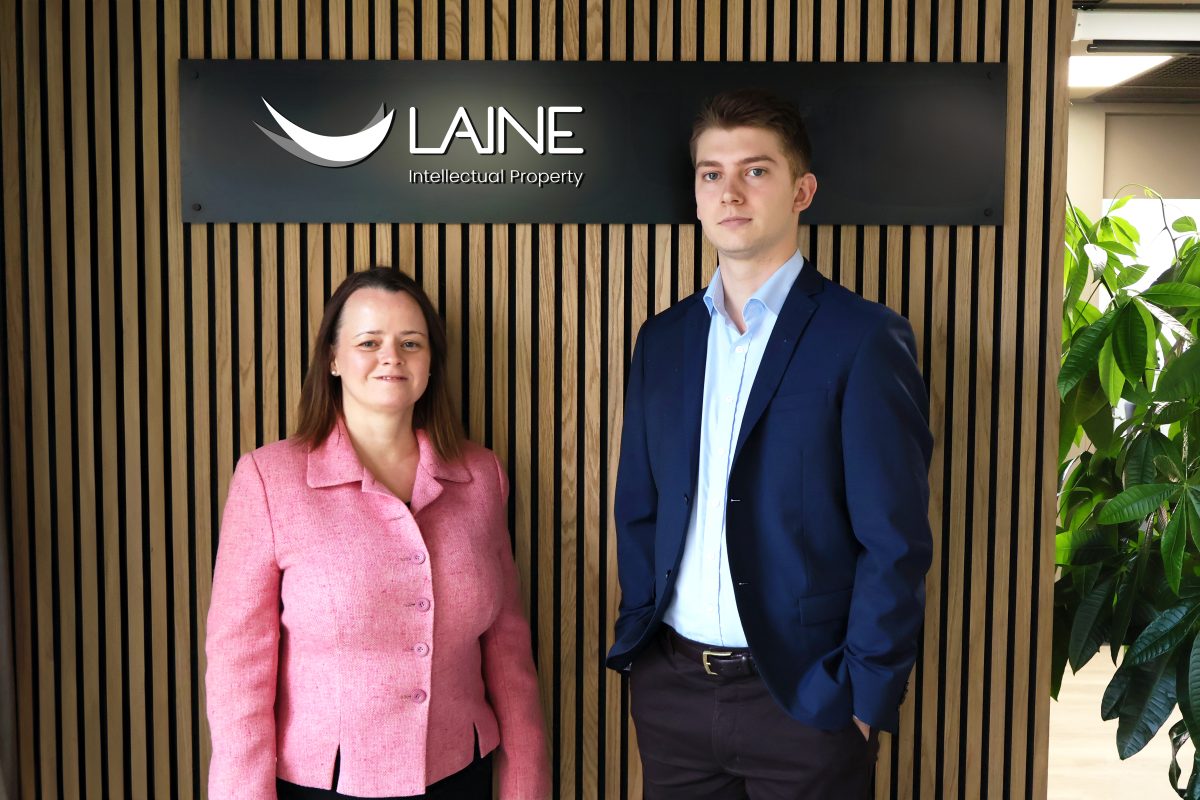-
Palvelumme
-

In the world of intellectual property law, Patent Agents play a pivotal role in safeguarding innovation and ensuring the legal protection of groundbreaking ideas. Becoming a successful Patent Agent requires a diverse set of skills and knowledge spanning legal, business and technical domains. None of the experts entering the profession has all the required skills to begin with and thus in-house training is an important part of the career path.
Laine IP is constantly looking for the best candidates for entering our training program. The training program is a mix of self-study, courses and practical work with real cases and clients. Candidates are closely mentored by an experienced Patent Attorney for several years to ensure that candidates feel confident in tackling all aspects of the profession.
We had a chat with two of our most recent U.S. Patent Agent trainees, Cristina Battistuzzi and Thomas Öhman, about their experiences working at Laine IP as trainees. Let’s see what they have to say about the training period.
Thomas: Before joining Laine IP in October 2023, I graduated in September 2023 with an M.Sc. in chemical engineering from Åbo Akademi University, majoring in Natural Materials Technology. I did not have any prior experience with IPR before joining.
Cristina: I have a M.S. in analytical chemistry from the University of Helsinki and a B.S. in Chemistry from a college in the US. My previous position here in Finland was at Thermo Fisher Scientific as part of the customer/quality control team. I have quite a varied background, I have research experience in the field of neuroscience while living in New York and teaching middle school science in Italy. I had no prior experience in IPR before joining Laine.
Thomas: I work in our Turku office, where only a couple of people from the firm work full-time. When I started, I travelled to our Helsinki office a few times a week to work more closely with my mentors Mark Scott and Toimi Teelahti, but now I go to Helsinki around once a week.
I usually arrive at the office between 10 and 11 a.m., after spending the first few hours of the day working at home by studying the material for the exam required for becoming an U.S. Patent Agent. Once at the office, I start looking at the relevant case assigned to me, and usually start drafting either a report for the client or a response to an office action. Other than that, I often communicate with Mark and Toimi and receive feedback for the work I’ve done, which is very valuable for my learning. We also have different team or company meetings at times, but most of the workday is spent working individually on a case.
Cristina: I enjoy a coffee and a chocolate and my day begins by checking assignments and discussing them with my mentor Mark Scott. In-between assignments, I follow the online course.
Thomas: I would say I learn about 50% from working on cases and 50% from studying the exam material. I’m currently in the process of completing an online study course which consists of modules with lectures and questions. I work on the study material independently for a few hours each day.
Most of the practical stuff is learned in the company’s actual cases, in which I learn, for example, to argue for patentability. Working on actual cases increases my knowledge of the patenting process as a whole, as the cases can be at any point of the patenting process, for example at the beginning, or nearing an actual patent. Together with Mark and Toimi, we regularly review both the practical work done as well as the material I’ve studied.
Cristina: The training is made up of studying for the Patent Bar Examination, and practical office work to assist the US Team in filing patent applications. As a study guide, we follow an online course based on the MPEP and in addition we have weekly meetings with Mark and Toimi who share their experience.
Thomas: I think some of the best parts are that we get to look at very different inventions, especially in the U.S team, as well as the feeling when you finally find a “break-through” in your arguments, that you believe could lead to a patent. Further, I like the flexible working times and the possibility to work at home.
Cristina: I enjoy problem solving and the continuous learning experience; there is no chance of being bored.
Thomas: Excellent written English, attention to detail, ability to communicate clearly, and the ability to learn and adapt after receiving feedback.
Cristina: You need to be a curious person, who enjoys learning, and gathering information from different sources and analyzing it in ways that are useful for communication with the US patent office as well as with the client. Patents are a whole new world if you have never worked with them before, so every day you need to be ready to put on your hiking shoes and go.
If you believe that you would make an excellent Patent Agent, please do not hesitate to contact us! Also have a look at our open position.